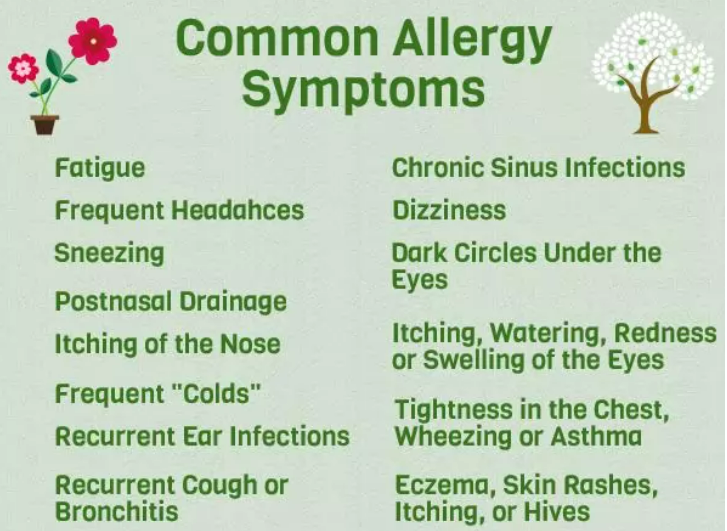
Eradicate your Allergy Symptoms with SLIT
Sublingual immunotherapy, often called allergy drops, works like allergy shots by gradually helping your body build tolerance to the antigens or substance(s) that cause your allergies. The difference is that the antigen is placed under your tongue in a customized liquid form. Learn how allergy drops work.
An antigen is an allergy-causing substance such as pollen, mold, pet dander, and specific foods such as dairy, peanuts, fish, wheat, corn, and eggs, among many others.
One of the benefits of sublingual immunotherapy is that it can treat a broad range of allergies, including those caused by:
- Dust mites
- Mold
- Animals
- Foods
- Seasonal pollens such as grass, trees, ragweed, and mountain cedar
In addition to being a viable option for people of all ages and conditions, there are more advantages:
- Lower cost, fewer clinic visits. Compared to shots and many medications, allergy drops typically cost less over time. Most patients receiving allergy drops need only a few clinic visits the first year, and then once every 6-12 months thereafter until visits are no longer needed. That can also mean a lot less time away from work or school.
- More convenient. You can take allergy drops at home or wherever you are, making it much easier to stay with your treatment.
- Less medication. Our patients report, and research confirms, that they typically need less medication to control symptoms after beginning allergy drops.
- Enjoy healthier days. The end benefit of taking drops consistently? Feeling better, more productive and better able to enjoy life and activities that allergies once made it hard to enjoy.
Anyone interested in treating the cause of their allergic disease, instead of just temporarily managing symptoms, can consider allergy drops. Although most allergy sufferers can benefit from allergy drops, they’re especially ideal for people who can’t tolerate or don’t respond to allergy shots, as well as those who are unable to commit to other therapies and long-term medication use. These people include:
- Asthmatics
- People with highly sensitive conditions including EoE
- Those who don’t like needles
- Those with chronic conditions including sinusitis and eczema
- Those with food and mold allergies
- Those with multiple allergies including dust mites, pollen, foods, and animals
The antigens used in allergy drops are the same FDA-approved antigens used in allergy shots. They’re prepared in the same way as allergy shots. The difference is the route of delivery — a dispenser that delivers a precise drop of antigen under the tongue versus a syringe injecting antigen into tissue. The FDA approves products, not therapies, so it’s unlikely that it will ever “approve” custom, multi-antigen sublingual immunotherapy.
Antigens are labeled by the FDA for single use through injections and some for sublingual immunotherapy. A number of FDA-approved biologics are considered off label use when delivered via sublingual immunotherapy, which is both legal and highly common. Most physicians prescribe drugs in an off-label manner today, for example, the use of blood pressure medications for migraines, montelukasts for COPD, or arthritis drugs to treat shingles. Multiple antigen therapies for both injection and sublingual use are an off-label use of FDA-approved biologics. Needing to see ‘the science’? Clinical research with SLIT dates back 100 years
Allergy drops are prescriptions; therefore, a licensed prescriber must order and will monitor your treatment progress and dose based on your progress. Contact your provider to order your prescription. If you are interested in Allergy SLIT therapy, please fill out our online health history form and ask for an appointment with Sophia DaRosa-Spillane, NP.
Insurance companies may cover the cost of office visits and diagnostic testing. Because allergy drops are an off-label use of FDA-approved antigens, they are not typically covered by insurance. Check with your carrier first.
Allergy drops do qualify for Health Savings Account or Flex Spending reimbursement. Even without insurance coverage, most patients find treatment affordable and comparable to other medication or visit co-pays. Most patients agree that the temporary investment in allergy drops is well worth the lasting results and improvement in their quality of life.

 “Finding 4 Better Health was a blessing after many years of traditional medicinal doctors /Endocrinologists being unable to get me to feeling optimal. Dr Zub listened to me, truly heard me & devised a proactive plan for me to have a better life. My body is still healing, but I am no longer barely functioning to get through my daily life. I can exercise again without being completely depleted of energy. I have been able to successfully lose 20 pounds. I feel I can always contact Dr. Zub with any questions or concerns I may have. We continue to work together to find the right course of action for my health. I can’t say enough great things about their practice.”
“Finding 4 Better Health was a blessing after many years of traditional medicinal doctors /Endocrinologists being unable to get me to feeling optimal. Dr Zub listened to me, truly heard me & devised a proactive plan for me to have a better life. My body is still healing, but I am no longer barely functioning to get through my daily life. I can exercise again without being completely depleted of energy. I have been able to successfully lose 20 pounds. I feel I can always contact Dr. Zub with any questions or concerns I may have. We continue to work together to find the right course of action for my health. I can’t say enough great things about their practice.”


